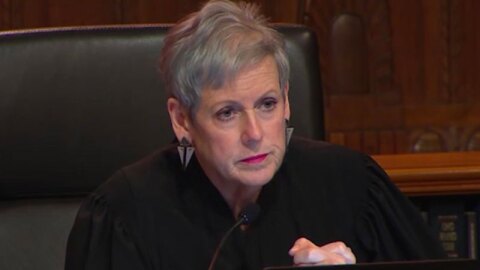As groups, associations, and individual polticians around Ohio line up against a statewide ballot issue to cut jail time for some drug offenders, one group remains steadfast in their support.
The Ohio Legislative Black Caucus first came out in support of Issue 1 last week, with president Stephanie Howse saying, “We believe in treatment over incarceration.”
Issue 1is a proposed constitutional amendment to convert low-level felony drug possession and drug use crimes to misdemeanors with no jail time. It also directs the state to put money saved by a reduced prison population into drug treatment and crime victim programs.
Howse says it’s an issue important to her caucus because of racial disparities in sentencing for drug offenders. Civil rights groups like the American Civil Liberties Union have long contended that African-Americans are disproportionately affected by drug sentencing laws. Studies show black and white Americans committing similar drug offenses are likely to receive much different sentences.
In its most recent census, Ohio prison officials said African-Americans made up 45 percent of the overall prison population, compared to just 14 percent of Ohio’s total population.
In that census, 6,290 people were incarcerated because of drug-related offenses. Of those, 2,688 were locked up for drug possession.
“We need to change our system of criminalization of people who are dealing with drug addiction,” Howse says.
Some critics of Issue 1 have said the Ohio Constitution is not the best place to address sentencing reform, a topic frequently revisited in modern American history. Howse says she and other members of the Ohio Legislative Black Caucus have few other options because the Republican-controlled Legislature has been slow to act.
Lawmakers have taken up some reforms, including SB 66, which rewrote Ohio law to promote rehabilitation for felony offenders. It also allows more low-level felony offenders get their records sealed so they don’t have to reveal their past in job applications and when applying for housing. That law takes effect later this month.
Howse says her caucus backs Issue 1because they want to do more and bring about “systematic change.”
Other critics of Issue 1have focused on its possible affect on drug courts. The diversion courts offer offenders a chance at drug treatment instead of jail, and some politicians, including Democratic Attorney General candidate and former prosecutor Steve Dettlebach and Ohio Supreme Court Chief Justice Maureen O’Connor, have said Issue 1 would hurt the courts by removing the threat of jail for enrollees who relapse.
“Why are we using threats as a motivating factor to really help people?” Howse replies, when asked about how Issue 1 could impact drug courts. “We really have to look at restoring people, not just coming into it and threatening people that you to do this, to do that. It’s shown that those things are not working.”
Polls show many likely voters are on Howse's side. A survey by Suffolk University fould 43.2 percent of likely voters support Issue 1, while 37.8 percent did not support it. Nineteen percent were undecided.





